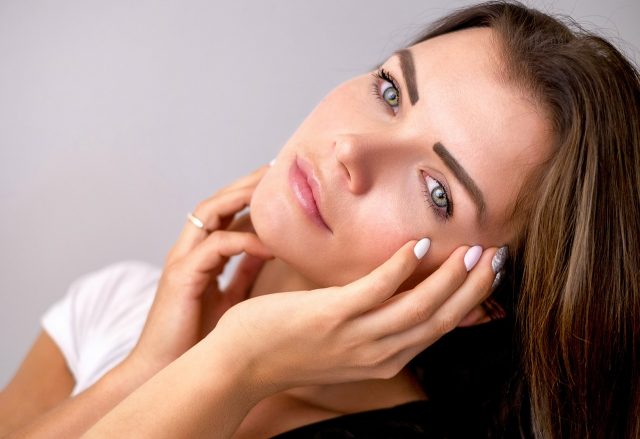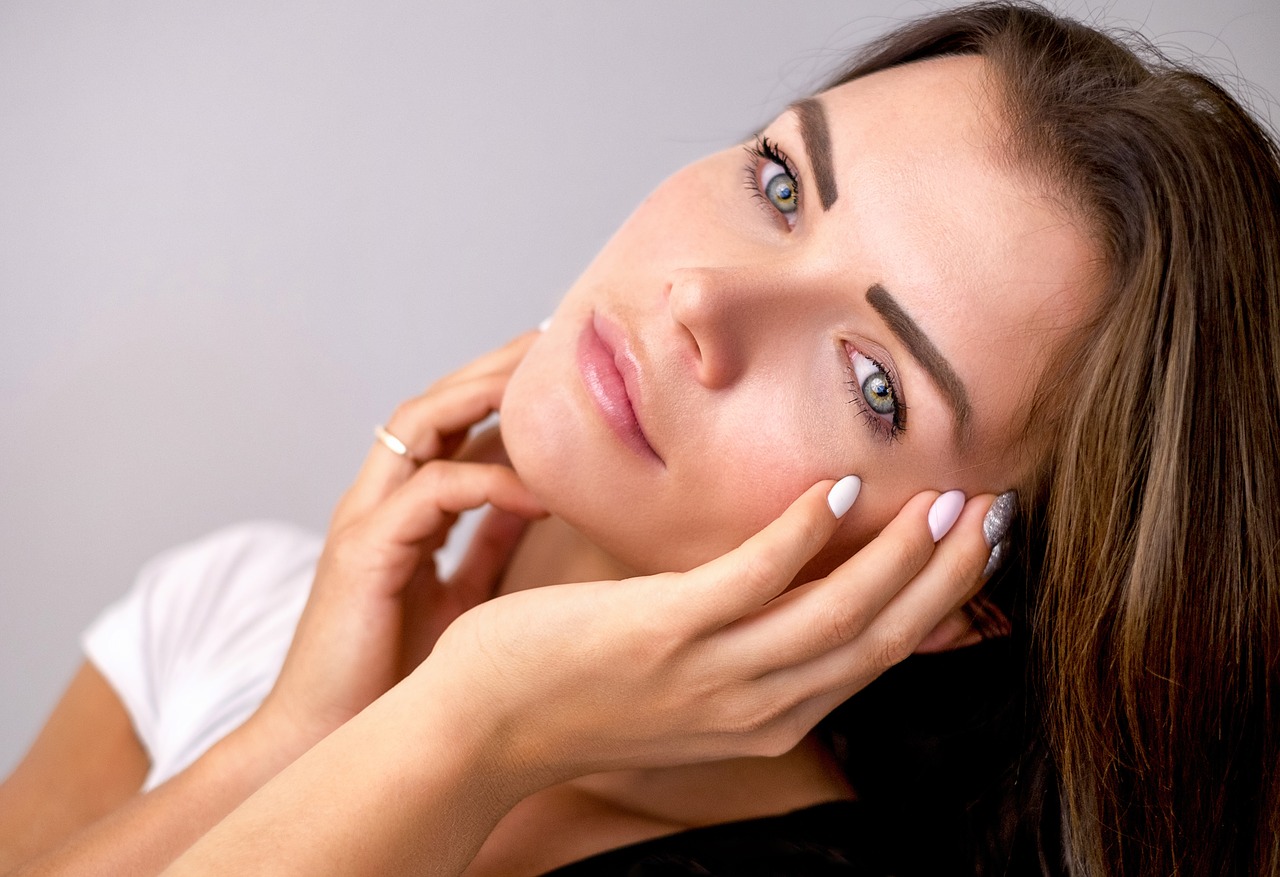Your skin is one of your most valuable attributes, but it is often at great risk of damage and shows the wear and tear of years passing. It’s vitally important to look after your skin regardless of your age and gender. It’s not just about looks, it’s about health and wellbeing too. If your skin is suffering you will suffer. A lack of care for your skin puts you at risk of cancer and infections.

But it can be hard to know where to start. Some cosmetic advertisements would have you believe that if you just buy their products you will unlock the secrets of great skin, which of course is nonsense. Whilst a high-quality moisturizer and cleanser can be an important part of your skincare routine, there are a lot of steps you can take that will improve the health of your skin.
These fundamental skincare rules are an easy and cost-effective way to give you the healthy, glowing skin that you deserve. They also drastically reduce the risk of damage to your skin which can be extremely dangerous.
1. Always Wear Sunscreen
This is the first and most important tip to maintaining healthy skin. Sunscreens reduce the level of ultraviolet rays that attack your skin. Skin damage from UV radiation can cause cancer and premature aging so it’s vitally important that you protect yourself every time you venture outside. May skin care experts recommend that you use sunscreen regardless of the weather, and is it really worth the risk?
Take the extra couple of minutes to apply sunscreen before you leave the house. Also, wearing a hat is a great way to double down on that sun protection, as are long-sleeved shirts. Sunglasses will also stop you from constant squinting which is a quick way to get wrinkles. Sunscreens come in a wide variety of strengths and methods of application.
As a general rule using SPF 50 is a good idea, basically the more protection the better, and make sure you reapply every few hours or according to directions. If you don’t like the clammy feel or smell of sunscreen there are a few products on the market that you could try that aim to counter these common complaints.
2. Be Careful What You are Putting in Your Body
If you are eating healthy and balancing your diet you will find that your skin will reflect that. But when you are abusing your body with bad food and bad habits your skin is likely to suffer too. Smoking has a very real detrimental effect on the health of your skin, it causes wrinkles amongst other physical manifestations of the harm that it is doing to your body. Alcohol can also have a very real impact on your skin causing breakouts, bloating, dehydration and can cause a whole bunch of problems relating to hormones that will affect your skin. There’s bad news for coffee lovers too with caffeine causing dehydration and breakouts as well, and we are all pretty aware of how bad junk food is for your skin.
Start drinking more water and eating better and you won’t believe how much your skin will improve. A diet high in vegetables and low in sugar will do wonders for controlling breakouts and improving overall skin tone and health. Try to eat as simply as you can by limiting your processed food and cut out sugary drinks, which incidentally are believed to be one the biggest dietary problems in western countries. If you are unsure where to start why not consult a dietician or nutritionist or seek out professional advice online.
3. Choose the Right Products
Unless you are a whizz a whipping up thoroughly researched and tested home remedies you are probably going to need some store bought products to help you establish good skin habits. But before you go spending money on products that you don’t need, ensure that you know what products are best suited to you.
One thing to take into account when looking at products is your skin type. A lot of people struggle to work out exactly what their skin type is and it can get quite tricky to self-assess but generally speaking; normal skin is skin that has a pretty good balance, not too oily not too dry whereas dry skin doesn’t produce enough sebum to naturally keep the skin moisturized and oily skin is skin that produced too much sebum.
Then there is combination skin which may have patches of all three. Then there are those who want their skin care products to reduce or prevent wrinkles, and even these are sometimes divided into skin types to create the best possible outcome for your face. Purpose made moisturising and cleansing products are a huge part of how to get rid of wrinkles. There are skin care products to cater to all skin types and you should do some online research to determine the best product for your needs.
4. Develop a Good Skin Care Routine
Now that you’ve got the products you need how often and when should you use them? You should be using a cleanser appropriate for your skin every morning and evening before bed, but if you work in an industry where you are likely to get covered in dirt and grime or if get up a good sweat during your workout you might want to introduce another cleanse after those activities if you think that is necessary.
Cleansing should always be followed by a well-chosen moisturizer. You should exfoliate once a week. Exfoliation should be a gentle process not harsh and damaging to the skin. A moisturizing mask is a bit of fun and great for your skin but there is no need to use one often. But a good moisturiser mask is a great idea before an event or even if you just want to treat yourself. Regardless of how grimy your face is, avoid using harsh cleansers on your face unless specifically advised by a medical professional.
And finally, this should probably go without saying but keep your hands clean, because whether you mean to or not you are likely to rub your hands on your face and cause a whole host of problems if there is dirt or chemicals on your hands.
5. Use Less Makeup
Many of us use makeup every day and to varying degrees. Make up, while often being designed to be gentle enough on your skin so as to not give you a rash or an immediate dermatological reaction is not necessarily designed with the long-term health of your skin in mind.
Generally speaking, makeup products are not inherently harmful but for some people, makeup can cause a whole host of problems and if you are one of those people then you shouldn’t struggle on and continue using that particular cosmetic. Cease use immediately, try another brand or just go without. If makeup makes your skin overly oily, itchy, flakey red or swollen then you really should stop using it. continue to use makeup when it produces those reactions can have long-term consequences for the health of your skin.
Makeup can cause a very specific kind of acne, inflame eczema and block pores. If you do decide to wear makeup try to use less if possible and cleanse your face thoroughly as soon as you can, don’t go to sleep with your makeup on!
6. Get Moving
Another great habit to get into for your overall health as well as your skin is regular exercise. Exercise helps to reinvigorate your body and pushes more blood to your extremities improving the overall health of your skin. If you aren’t very active why not try a brisk walk, dancing or even basic yoga to get your body moving. A lot of parents find it particularly hard to schedule in time to work out when their time is so dominated by carers duties.
If you are a parent of kids who are able to play on a playground, play basketball or kick a soccer ball why not play with them. There are many reasons why children have such beautiful skin but one thing that certainly helps is their constant activity. Join in with the fun and brighten your skin at the same time. If you don’t have kids to run around with why not join a sporting group or gym. Gyms can be very expensive and easy to forget about, they are however more convenient for busy people and may work for your lifestyle.
7. Don’t Use Hot Water
This is going to sound really silly but don’t wash your face in hot water. This is incredibly counter intuitive on very cold days when you really don’t want to be splashing your face with cold water, but hot water will be much worse for your skin in the long run. Hot water opens up your pores making them vulnerable to dirt and grime getting in and causing breakouts and blackheads. Using cold water isn’t a good idea either as it closes your pores and creates a bunch of new problems regarding blackheads and pimples.
The best temperature to wash your skin at is lukewarm, somewhere in between hot and cold. A lot of websites will tell you that there is some special combination of hot and cold that is the best for washing skin, but the general professional consensus is that cold water is okay to reduce puffiness one in a while, hot water is not a good idea and somewhere in the middle is the sweet spot for great skin care. Run a little lukewarm water into your sink and adjust the hot and cold to get the right temperature then use your specially selected cleanser and pat dry after rinsing to prep it for moisturizing.
8. Sleep Better
A good night’s sleep is one of the best things you can do for your overall health so it should come as no great surprise that it also wonderful for your skin. A good sleeping pattern can prevent and reduce the appearance of wrinkles, help your body combat infections and breakouts and reduce bags under the eyes.
But achieving a good night’s sleep is easier said than done for some people, and whether it is work, stress, family or a whole host of other issues that prevent people from sleeping, getting to sleep and staying asleep is a real challenge for a surprising number of people. Some difficulties sleeping can be combated by improved sleep hygiene.
Sleep hygiene is the process of eliminating distractions and obstacles in order to provide you with you with the best possible sleep. Some easy steps towards better sleep hygiene include; moving away from all phones and technological devices that might make you actively distracted or subconsciously alert, creating a sleep routine in which you do all the activities you need to before sleeping such as lock doors and brush teeth and eliminating sound and light as much as is possible.
If you are struggling to sleep and are worried that you might be experiencing insomnia it is important to seek medical help as a lack of sleep can drastically affect your physical and mental health.
Skin care is a complex subject and if you have any severe skin conditions you should seek medical advice to make sure that you are not doing more harm than good. A dermatologist will be able to assess your skin and provide you with information about how best to care for it. But these fundamental rules are a great way to reduce the wear and tear on your skin, rejuvenating and reinvigorating it to give you that clear glow of healthy, well cared for skin.
An important takeaway from these rules is the importance of consistency. If you only follow these rules for a short time you will only see temporary results. Perseverance is the key particularly in regards to dietary changes and sleeping patterns. Making lifestyle changes and introducing new habits is the best way to maintain healthy skin for years to come.

